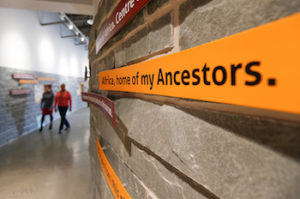
Birchtown, Nova Scotia, was established on this date in 1783. In the 18th century, it was one of North America's largest free Black settlements.
The settlements began with the American Revolutionary War, the Declaration of Independence, and Lord Dunmore, the Royal Governor of Virginia. He offered freedom to any African slave in the colonies who would escape from his master and fight on the side of those loyal to the British Crown. More than 300 Blacks immediately found their way behind British Lines and formed the Ethiopian Regiment. Black slave Soldiers who fought for the British did so in the belief that they were securing freedom for themselves and all enslaved Blacks.
The British were confident, because slaves made up 20% of the American population, that the Colonial uprising would be squelched if they could convince slaves to join the ranks. By 1779, the British saw another reason for luring slaves from American plantations. Their departure from rebel-owned estates would seriously undermine the Antebellum South's plantation economy. The British extended their offer of freedom, including land grants and provisions, to the former slaves once the rebellion was defeated. It is estimated that as many as 100,000 slaves took refuge behind British Lines. By the summer of 1782, the Americans were winning the war, and the British prepared to leave. They left several Blacks behind who were recaptured into slavery. Other Black Loyalists were resettled in Florida, the West Indies, and Canada.
Over 3,500, the largest Black Loyalists, made it to Nova Scotia and New Brunswick. The Loyalist colonies could not maintain the influx of thousands of new citizens. A priority system was established to serve the latest citizens of British North America. White officers and gentlemen were first served regarding rations and land grants. Ordinary Privates and laboring people among the whites had to wait.
The blacks, coming up last, rarely received the promised land or rations. With a population of more than 2,500 (at the time), Birchtown, Nova Scotia, became the largest settlement of free Blacks outside Africa. There were 649 male heads of families in Birchtown during the 1784 muster. Out of bureaucratic incompetence and racial inequality, only 184 heads of families received the promised crownland. These lands averaged 34 acres.
Other Black Loyalists settled in communities such as Port Mouton (Later Liverpool), Brindy Town (near Digby), Musket Greenville (near Yarmouth), Little Tracadie (Guysborough County), Preston (Halifax County), Annapolis Royal, Halifax, and Saint John, New Brunswick.
The Black Loyalist Heritage Society
Po Box 1194
104 Birchtown Rd.